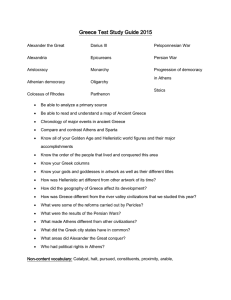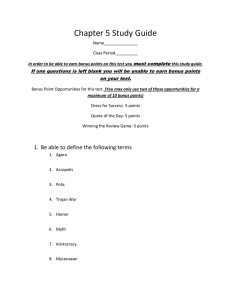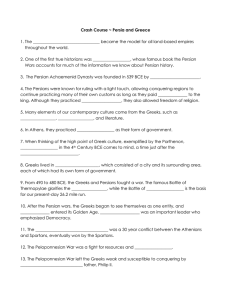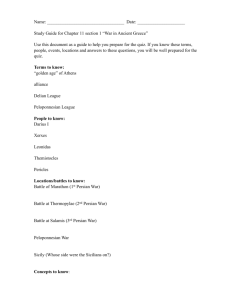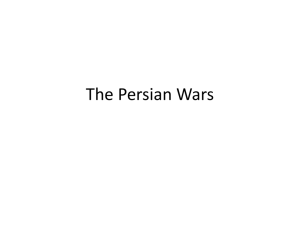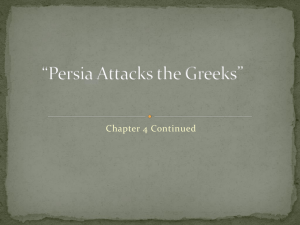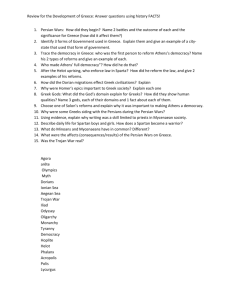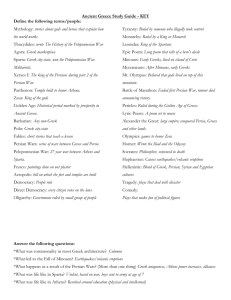Ancient Greece Study Guide and Review
advertisement
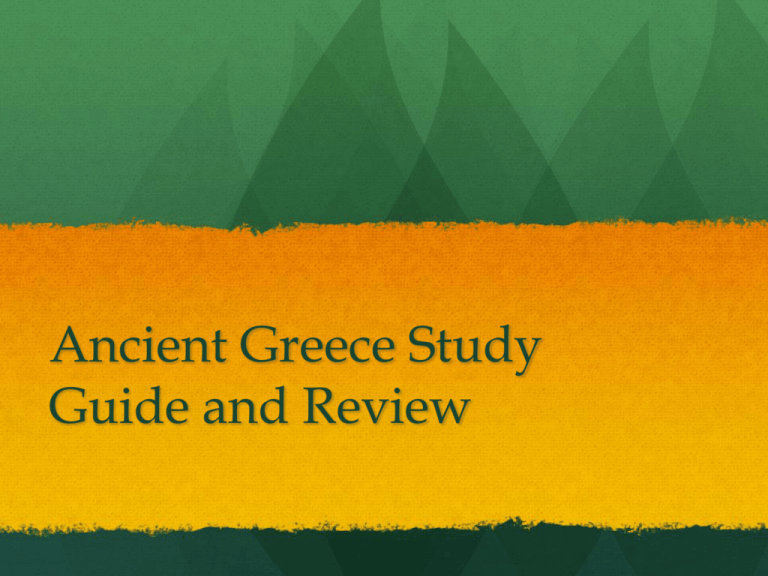
Ancient Greece Study Guide and Review Chapter 4 Section 1 1. Only free native-born men who owned land could be citizens p.122 2. The Greek alphabet was based on the Phoenician alphabet p. 120 Chapter 4 Section 2 1. Peisistratus won the support of the poor by dividing large estates among landless farmer. P.129 2. Spartan returned home at age 30. p.127 Chapter 4 Section 3 1. Xerxes became the Persian king after the death of his father Darius in 486 B.C. p.135 2. Xerxes wanted to conquer Greece because he wanted to seek revenge, to win glory, and to increase his country’s wealth. P.135 3. The Greeks won the battle of Salamis because their ships could move around quickly. P. 136 Chapter 4 Section 4 The Delian League began as an alliance to protect the Greeks from the Persians. P. 139 In direct democracy, people gather at mass meetings to decide government matters. P.139 Chapter 5 Section 1 The goddess of wisdom and crafts is Athena p. 155 Homer’s epic Iliad is about the Trojan War. p.157 Chapter 5 Section 2 Philosophers believed the human mind could understand everything. P.169 Socrates was sentenced to death for his teachings. P. 170 Plato thought that government should be headed by philosopher-kings. p. 170 A Greek named Herodotus wrote the history of the Persian Wars. P. 173 Terms, People, Places Spartans focused on military training Pericles made Athens more democratic Satrapies were Persian states or provinces Oligarchy was a form of government used by Spartans A strait a narrow body water with land on both sides Parthenon was created by workers hauled 20,000 tons of marble and took 15 years to build Tyrant rules with authority Athens focused on government and education Cyrus the Great was the King of Persia A myth is a traditional story about gods and heroes. Thucydides was considered by some to be the greatest historian of the ancient world. Pythagoras taught that the universe followed the same rules as music and numbers. Mount Olympus is the highest mountain in Greece.

